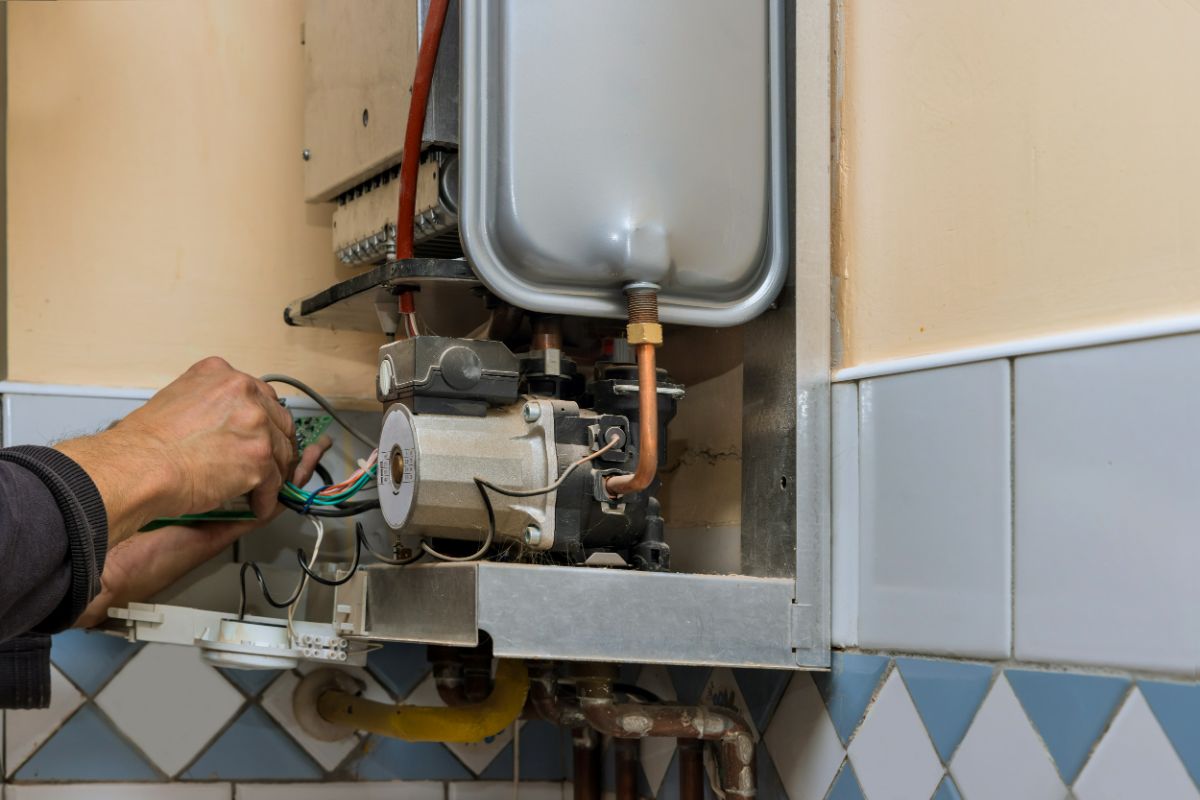They are making a few good points regarding How to Maintain Your Water Heater & Prolong its Life as a whole in this content following next.

Hot water is necessary for everyday convenience, whether it's for a rejuvenating shower or washing recipes. To ensure your warm water system runs efficiently and lasts much longer, normal maintenance is vital. This write-up offers practical ideas and insights on exactly how to maintain your home's hot water system to avoid disturbances and costly fixings.
Introduction
Preserving your home's warm water system may appear difficult, yet with a few basic steps, you can ensure it runs smoothly for several years ahead. This guide covers whatever from recognizing your warm water system to DIY upkeep ideas and knowing when to employ specialist help.
Value of Keeping Your Warm Water System
Routine upkeep not just extends the lifespan of your hot water system yet additionally guarantees it operates effectively. Ignoring upkeep can lead to reduced effectiveness, greater power costs, and even premature failing of the system.
Indicators Your Warm Water System Demands Upkeep
Recognizing when your hot water system needs interest can stop significant concerns. Look out for indications such as irregular water temperature, unusual noises from the heating unit, or rusty water.
Comprehending Your Hot Water System
Before diving into maintenance tasks, it's useful to understand the basic components of your warm water system. Typically, this includes the hot water heater itself, pipelines, anode poles, and temperature level controls.
Regular Monthly Maintenance Tasks
Regular monthly checks can help capture small problems before they intensify.
Flushing the Hot Water Heater
Flushing your water heater removes debris build-up, enhancing effectiveness and lengthening its life.
Monitoring and Replacing Anode Rods
Anode rods prevent corrosion inside the container. Evaluating and changing them when worn is crucial.
Inspecting and Readjusting Temperature Level Settings
Adjusting the temperature level settings ensures optimal efficiency and safety.
DIY Tips for Upkeep
You can execute a number of maintenance jobs on your own to maintain your hot water system in leading condition.
Checking for Leakages
On a regular basis inspect pipelines and connections for leaks, as these can bring about water damage and higher costs.
Evaluating Stress Alleviation Valves
Checking the pressure safety valve guarantees it functions correctly and avoids extreme stress buildup.
Shielding Pipes
Insulating warm water pipes decreases warmth loss and can save power.
When to Call an Expert
While DIY upkeep is advantageous, some issues call for professional expertise.
Complicated Issues Needing Professional Assistance
Examples consist of major leakages, electric issues, or if your hot water heater is regularly underperforming.
Regular Expert Upkeep Advantages
Specialist maintenance can include thorough assessments, tune-ups, and making certain conformity with safety requirements.
Verdict
Regular maintenance of your home's warm water system is important for effectiveness, longevity, and cost financial savings. By adhering to these tips and understanding when to look for specialist help, you can ensure a trustworthy supply of warm water without unexpected disruptions.
How to Maintain an Instant Hot Water Heater
Before tinkering with your hot water heater, make sure that it’s not powered on. You also have to turn off the main circuit breaker and shut off the main gas line to prevent accidents. Also turn off the water valves connected to your unit to prevent water from flowing into and out of the appliance. 2. When you’re done, you have to detach the purge valves’ caps. These look like the letter “T” and are situated on either side of the water valves. Doing so will release any pressure that has accumulated inside the valves while at the same time avoid hot water from shooting out and burning your skin. 3. When the purge valves’ caps are removed, you have to connect your hosing lines to the valves. Your unit should have come with three hoses but if it didn’t, you can purchase these things from any hardware or home repair shops. You can also get them from retail stores that sell water heating systems. Read the user’s manual and follow it to complete this task properly. When the hosing lines are connected, open the purge port’s valves. 4. You should never use harsh chemical cleaners or solutions when cleaning your unit. Make use of white vinegar instead. It should be undiluted and you’ll probably use about 2 gallons. 5. Now flush your water heater. This task should probably take about 40 minutes. We can’t give you specific directions for this because the procedure is carried out depending on the type, model and brand of your heater. With that being said, refer to the user’s manual. 6. When you’re done draining the unit, you have to turn off the purge port valves again. Remove the hosing lines that you earlier installed on each of the water valves. Put the valve caps (purge port) back in their respective places and be very careful so as not to damage the rubber discs that are found inside these caps. 7. Now that everything’s back in place, check your user’s manual again to find out how to reactivate your water heating system. 8. Once it is working, turn one of your hot water faucets on just to let air pass through the heater’s water supply pipes. Leave the tap on until water flows smoothly out of it. https://www.orrplumbing.com/blog/2014/september/how-to-maintain-an-instant-hot-water-heater/

I discovered that blog posting about What Kind of Maintenance Do Water Heaters Need? while browsing on the internet. Do you know about anybody else who is curious about the topic? Please feel free to share it. We value reading our article about Water Heater Maintenance Tips You Can't Afford to Forget.
Schedule And Pricing